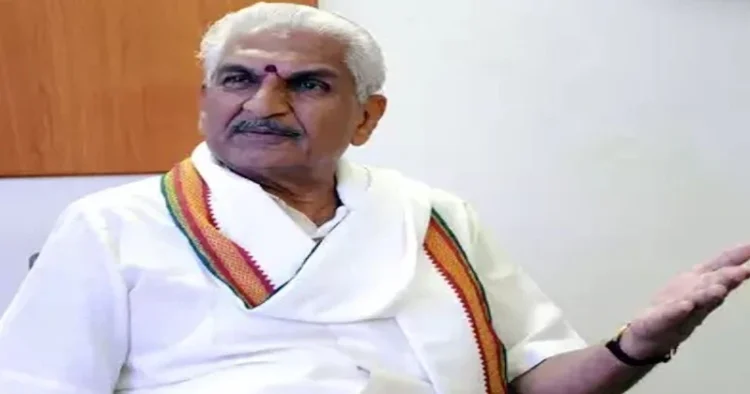The Democratic Youth Federation of India (DYFI) in Dakshina Kannada district has strongly condemned the recent move by Ullal police to register a First Information Report (FIR) against its members who participated in a protest demanding the arrest of Rashtriya Swayamsevak Sangh (RSS) leader Kalladka Prabhakar Bhat. The protest took place near Thokkottu bus stand on December 29, where DYFI members voiced their concerns over the alleged remarks made by Bhat against Muslim women.
The controversy surrounding Bhat deepened when Srirangapatna town police in Mandya district booked him for his purported inflammatory remarks. In response, DYFI members in Dakshina Kannada organised a protest to demand Bhat’s arrest, citing the need for accountability for the alleged hate speech.
However, the Ullal police have registered a case against more than 16 individuals, including DYFI district president BK Imthiyaz, district secretary Santhosh Bajal, Sunil Kumar Bajal, and others, for holding the Thokkottu protest. According to the police, despite the city police commissioner denying permission, the DYFI went ahead with the demonstration, causing inconvenience to vehicular traffic. The protesters were reportedly raising slogans against the Government while demanding the arrest of Kalladka Prabhakar Bhat.
The charges against the DYFI leaders include Sections 143 (unlawful assembly), 147 (rioting), 341 (wrongful restraint), 268 (public nuisance), and 149 (unlawful assembly with a common objective) of the Indian Penal Code (IPC).
Santhosh Bajal expressed frustration, stating, “Despite a case being registered for delivering a hate speech, the Gvernment has failed to arrest Kalladka Prabhakar Bhat. Protests are being held across the state against the Government’s failure. On what basis are protests banned only in Dakshina Kannada? Holding protests is a constitutional right, and police permission is essential only for the use of loudspeakers.”
BK Imthiyaz added that the DYFI intends to formulate plans to protest against the case registered against its members and to criticise what they perceive as an anti-people administration of the Congress Government in the state.
The incident has sparked a debate on the right to protest and freedom of expression, with the DYFI arguing that their actions were constitutionally protected. The organisation is demanding answers regarding the selective imposition of restrictions on protests in Dakshina Kannada.
While the DYFI leaders’ protest against RSS leader Kalladka Prabhakar Bhat has garnered attention, the Rashtriya Swayamsevak Sangh (RSS) emphasises the importance of upholding free speech and due process. They argue that individuals, including Bhat, have the right to express their opinions within the framework of the law. Some supporters contend that registering cases against leaders for alleged remarks may impede open discourse and that legal procedures should determine culpability rather than immediate arrests based on public outcry. The issue highlights the delicate balance between freedom of expression and maintaining public order, sparking a broader conversation on the interpretation of speech within the legal context.
As tensions escalate, the DYFI remains resolute in its commitment to opposing the case and protesting what it deems an inadequate response from the Government. The situation is likely to unfold further in the coming days as the DYFI prepares to intensify its efforts against what it perceives as an unjust crackdown on its members.




















Comments